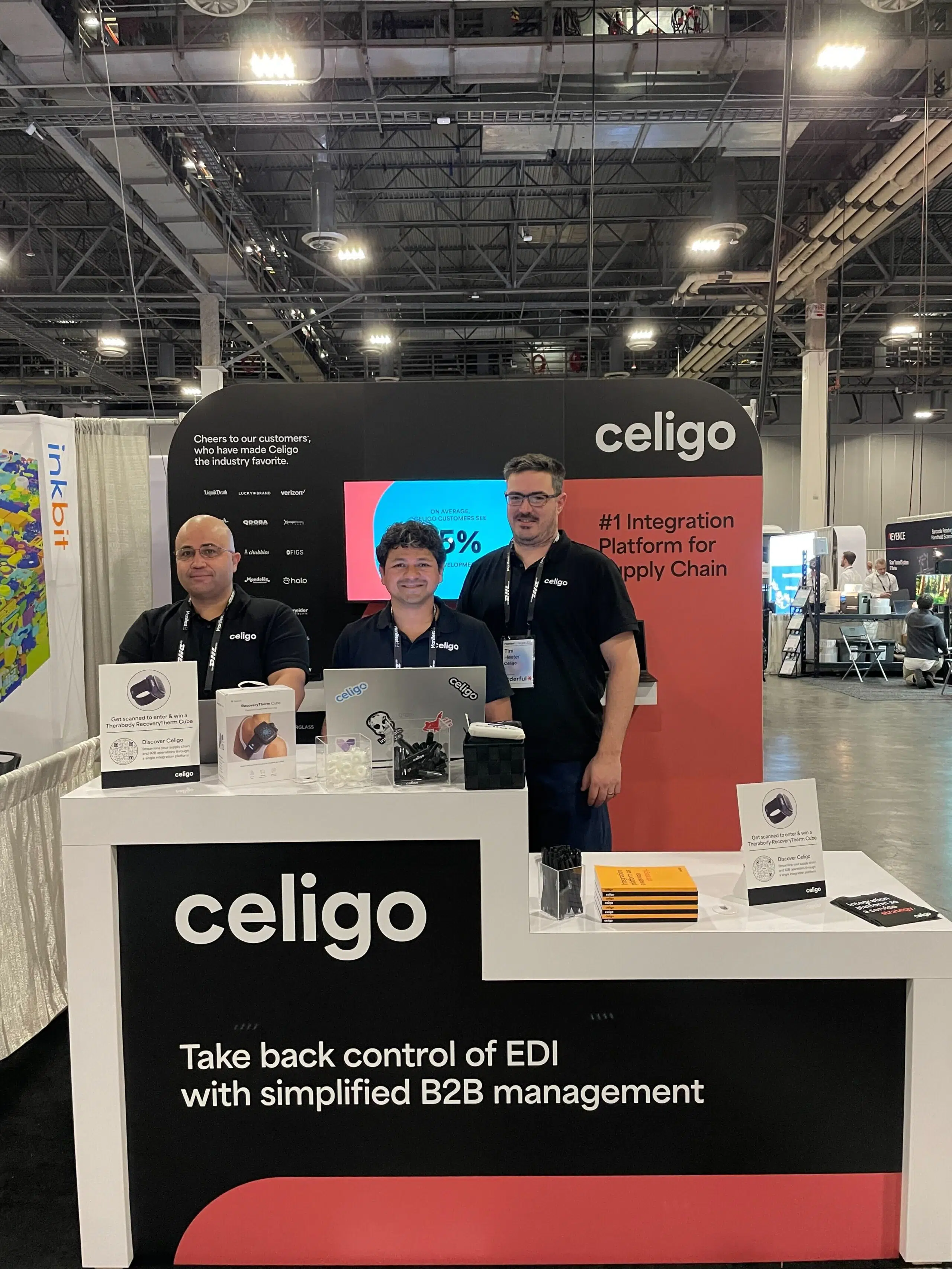
Imbema Accelerates Its Digital Transformation by Using Celigo for All Integrations Across the Company

“We’ve decided that every system that needs to talk to another system will be done through Celigo. The main advantage the Celigo platform provides my team and I the ability to manage and monitor all integrations in one place. If there is an error, I don’t need to look in several different places and contact different partners to find out where the problem is. We just have one place that’s easy to find and we can do it ourselves.”

Wesley Noorhoff
IT Manager,
Imbema
Construction, Energy, Petrochemical, Automobile
Haarlem, Noord Holland
About
Founded in 1947, Imbema supplies industrial products, software, and services for the energy, construction, processing, petrochemical, and automobile sectors across 10 subsidiaries. Imbema is headquartered in Haarlem, Netherlands and operates throughout Europe.
Background
Imbema is a 75-year old company who has embarked on a global initiative to modernize and transform its operations. In this effort, they have been moving all of their systems into cloud-native, digital applications, with the goal of connecting all suppliers and customers, with a focus on building solutions that streamline operations and allow them to better understand how their customers are using their products.
In addition, the company is expanding its portfolio beyond supplying products and into areas of software and services to help the logistics of deliver products like gas and grains from ports to ships.
The challenge
The first step in the digital transformation was for Imbema to transition from their historical ERP into NetSuite, and find a way to integrate it with EDI.
“There previously was no automation or integration with other systems.” said Wesley Noorhoff, Imbema IT Manager. “We needed to connect our suppliers and customers in a smart and deliberate way that made sure that we could grow, add and change various systems without breaking or having to redo previous work as we evolved.”
In addition, the lack of integration meant Imbema’s sales orders required a manual credit check through a separate Atradius system. The company processed 1,600 orders a month, with each order taking 20-30 minutes to log. This caused a slow down in fulfilling orders and meeting customers’ expectations, which led to a poor customer experience.
“This affected our customers and their ability to do business and we needed to improve this,” said Noorhoff.
The final challenge was that Imbema wanted the ability to create, manage and monitor their own systems and integrations with its own, lean IT team. When errors occurred, Imbema was dependent on several different partners to get assistance to identify and fix them, which was a major headache. The team needed a manageable, centralized platform that was extensible and supported modern standards (like EDI, JSON, etc.).
The solution
After evaluating several iPaaS solutions in conjuction with their partner, Cadran, Imbema settled on Celigo because of the simplicity of the user interface and the ability to monitor and manage all connections through a single platform.
Because Imbema lacked EDI expertise, Cadran recommended Zangabee, a Celigo-certfied partner with key subject-matter expertise to tackle the EDI – NetSuite integration for sales and purchases transactions. Zangabee also helped Imbema learn about the Celigo iPaaS platform and the ability to easily build their own automations.
With the success of using Celigo for EDI, the team that they would use Celigo for every integration across Imbema. From there, the team quickly embarked on creating an automation flow for sales orders with the required credit limit check and potential credit limit increase through Atradius, freeing up the finance team from having to process these orders manually.
“That was a big reason to celebrate the most,” said Noorhoff, “Dealing with the frustration of 1,600 tickets—it was a great way to save for labor costs overnight.”
The team next tackled getting its homemade Bill of Materials (BOM) configurator to NetSuite at the push of the button for one of its companies, creating a massive reduction in labor and frustration for the company. The team is now procuring a new configurator and are planning to expand the Celigo integration across all 10 of Imbema’s subsidiaries.
Bottom line
With the success of the initial integrations, Imbema will be using Celigo’s platform and its powerful connector technology to automate other key business processes across their organization.
Imbema has since started creating its own connectors with other systems they use like Kardex, Akaneo, WooCommerce, Gravity Forms, and JIRA. In the future, they also plan to add integrations between NetSuite and other platforms including Microsoft Azure, ADP, and DocParser.
Celigo’s intuitive platform allowed their small IT and Engineering teams to self-serve on a day-to-day basis without any 3rd party integration help. It allowed them to stay “lean and mean” and focus on building other key automations that helped realize even more efficiencies across the business. The previously required manual intervention was greatly reduced, giving back precious time to employees in various departments that is now being used on revenue-generating, customer-centric activities.
In addition to the operational efficiencies gained from Celigo’s platform, it also helped Imbema reduce costs and enhance customer experience, while allowing them to easily scale as the company grows.
The initial Celigo solution implemented for Imbema quickly led to integrating systems in other areas of their business in need of process automation. Their comprehensive solution continues to expand across their entire organization, with plans to implement additional automated workflows in departments such as Finance, On-boarding, Customer Support, Data Warehousing and Analytics and Product Configuration.
These automations have played a critical role in helping the company pivot from just being a reseller to now being able to provide applications and services directly to their customers. For example, Imbema has been able to dedicate resources to build an application to help shipping terminals and shippers manage the assets and products that are shipped, in addition to what they already provide with piping and maintenance services from the terminals to the shipping tankers.
Moving further up the value chain like this example is the strategic vision of their CEO, Alexander Bloemers, and continuing to automate other key business processes will position them to do this across the other industries and sectors they service today.
We used to have 1,600 tickets per month from that the team needed a manual credit check. Each easily 20 minutes to 30 minutes. It’s an amazing number. Automating these 1,600 tickets with Celigo was a great way to save for labor costs overnight.
Wesley Noorhoff,
IT Manager,
Imbema



